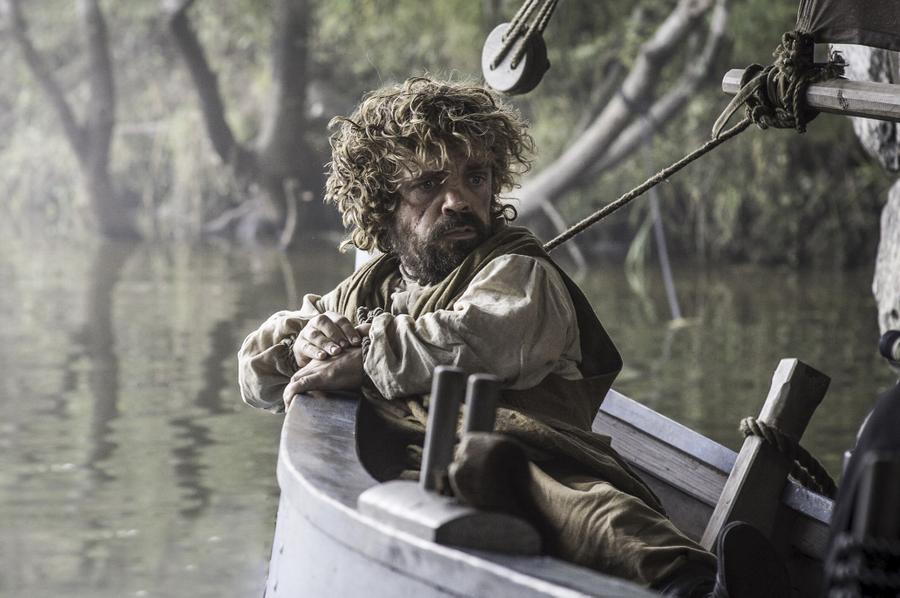**Readers beware: MAJOR spoilers for HBO’s “Game of Thrones” are contained in this column. Read at your own risk.**
Hello, friends. I’m going to shake things up a bit this week. Instead of suggesting shows, I’m going to give you all a chance to watch the multitude of shows I’ve recommended and instead talk about something that’s been on my mind.
I’m certainly not complaining, but you’d be hard-pressed to find a successful series out there that doesn’t have its roots in a book or series of novels. There’s Showtime’s “Outlander,” the CW’s “The 100” and “The Vampire Diaries,” TNT’s “The Last Ship” and of course, HBO’s “Game of Thrones” and “Dexter.” Book-based series have advantages right off the bat: many, such as Game of Thrones, already have devoted fan bases who will boost the ratings off of principle. When sketching out a season, writers in need can always fall back on the source material.
Or they can completely throw it away and do their own thing.
Does that sound blasphemous? If you’re a reader of George R.R. Martin’s successful novel series “A Song of Ice and Fire,” you might think so. Basing anything off a book always, always begs the question: How obligated are producers to stick to their source material?
Throughout its run, “Game of Thrones” has thrown some major curveballs by deviating from its source material more and more. Now, I began reading the books a few weeks before “The Rains of Castamere” (the ninth episode of the show’s third season) aired, so by the time the Red Wedding came around and Twitter exploded in anguish, I was prepared.
But as the show progresses, I’m finding myself less and less familiar with what is happening on the screen. The Red Wedding was made a little redder than it was in “A Storm of Swords.” Lady Stoneheart is still nowhere to be seen. Cersei and Jaime’s sex scene over Joffrey’s coffin was made into a rape (I can say a lot about this, but that’s a column for another week). Jojen was killed for no real reason I could see. Tyrion is not only on his way to Mereen, he’s there, and he’ll be Daenerys’ adviser.
I won’t even get into the whole Jon Snow thing.
I had a feeling all of these changes were coming. After “A Storm of Swords,” a lot of the action is replaced by political intrigue. There’s no thrilling Brienne vs. the Hound confrontation. Sansa doesn’t marry the psychotic Ramsay Snow. Instead, Sansa remains in semi-hiding under the alias Aryane, Jamie goes wandering, and Brienne and Podrick take down a few meaningless villains.
“If we were going to stay absolutely faithful to the book, it was going to be very hard to do that,” showrunner David Benioff says in an interview with Entertainment Weekly.
“Game of Thrones” aside, there are a plethora of shows out there that merely took the premise of a book and maybe some characters, and completely went off in a different direction. “The 100,” based on Kass Morgan’s successful book series, is virtually unrecognizable compared to her books.
Morgan, having no involvement in the show, is accepting of it. This variation, Morgan says in an article for the Huffington Post, “is a good thing — TV and literature are very different mediums and excel at telling different types of stories. But you have to be prepared for your characters to do things you never expected. It’s kind of like sending your kids off to college. You have to give them the freedom to become their own people.”
I believe changes are often necessary. Television audiences want different things than book readers do, and they want them at a quicker pace and with higher stakes. In books, when the action is at a lull, we can delve into the minds of the characters through internal monologues, whereas in television, a dramatic close-up can only do so much. Show must maintain a steady pace and keep the stakes high, or else their viewers will lose interest. They don’t have time for introspection.
It is virtually impossible to adapt a novel to the small screen word-for-word. A producer’s job is, first and foremost, to run a show. And yes, sometimes running a show efficiently requires changes. So where do shows draw the line between doing what’s best for their medium and veering too far off the beaten path?
One word: respect. Producers must respect the source material they draw from, whether it’s just a concept or an entire season’s worth of plot, because without it, they would have no show. Changes should be made not for shock value alone (I’m looking at you, “Game of Thrones” writers). If a show is going to claim it is based off of something, it should either accurately portray its source material or pay homage to it in some way.
After all, it’s just storytelling in the end.








